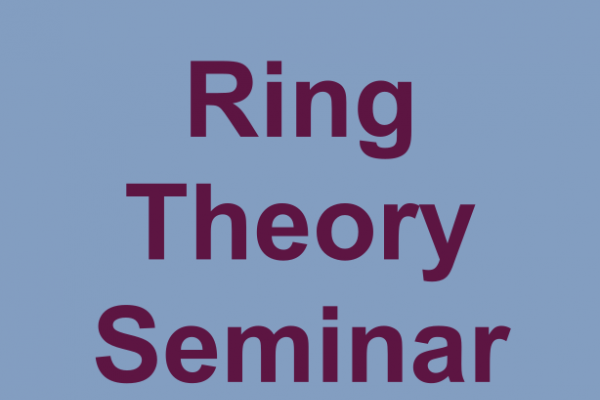
October 9, 2020
All Day
Zoom Meeting - See Link Below
Title: When are Baer modules extending?
Speaker: Cosmin Roman - The Ohio State University, Lima
Abstract: The decades old, well-known notion of an extending module has been associated in the past 15 years to that of a Baer module. A right $R$-module $M$ is called \emph{extending} if every submodule of $M$ is essential in a direct summand. On the other hand, a right $R$-module $M$ is called Baer if for all $N\leq M$, $l_S (N ) \leq^\oplus {}_{S}S$ where $S = End_R (M)$. The 1980 result of Chatters and Khuri, presenting the connection between extending and Baer property for rings, has been generalized in 2004 in a natural way to a module-theoretic version. The proof for this new result: {\it ``a module $M$ is $\mathcal{K}$-nonsingular extending if and only if $M$ is $\mathcal{K}$-cononsingular Baer"}, provides in fact conditions for an extending module to be Baer, and vice-versa. The main ingredients in these results are the notions of $\mathcal{K}$-nonsingularity and $\mathcal{K}$-cononsingularity, which are also natural generalizations of their ring-theoretic counterparts. Thus, every Baer module which happens to be $\mathcal{K}$-cononsingular will automatically become an extending module. In this presentation, the focus is on the study of $\mathcal{K}$-cononsingularity of modules, a notion that has so far escaped scrutiny. $M_R$ is called $\mathcal{K}$-cononsingular if for any $N\leq M$ with $\varphi N \neq 0$ for all $0 \neq \varphi \in S$, implies $N\leq^e M$. Examples, as well as new derived concepts, illustrating the notions and delimiting our results are going to be provided.
(This is joint work with Fatma A. Ebrahim and S. Tariq Rizvi)
Meeting ID: 927 3710 0856 Password: 694623
